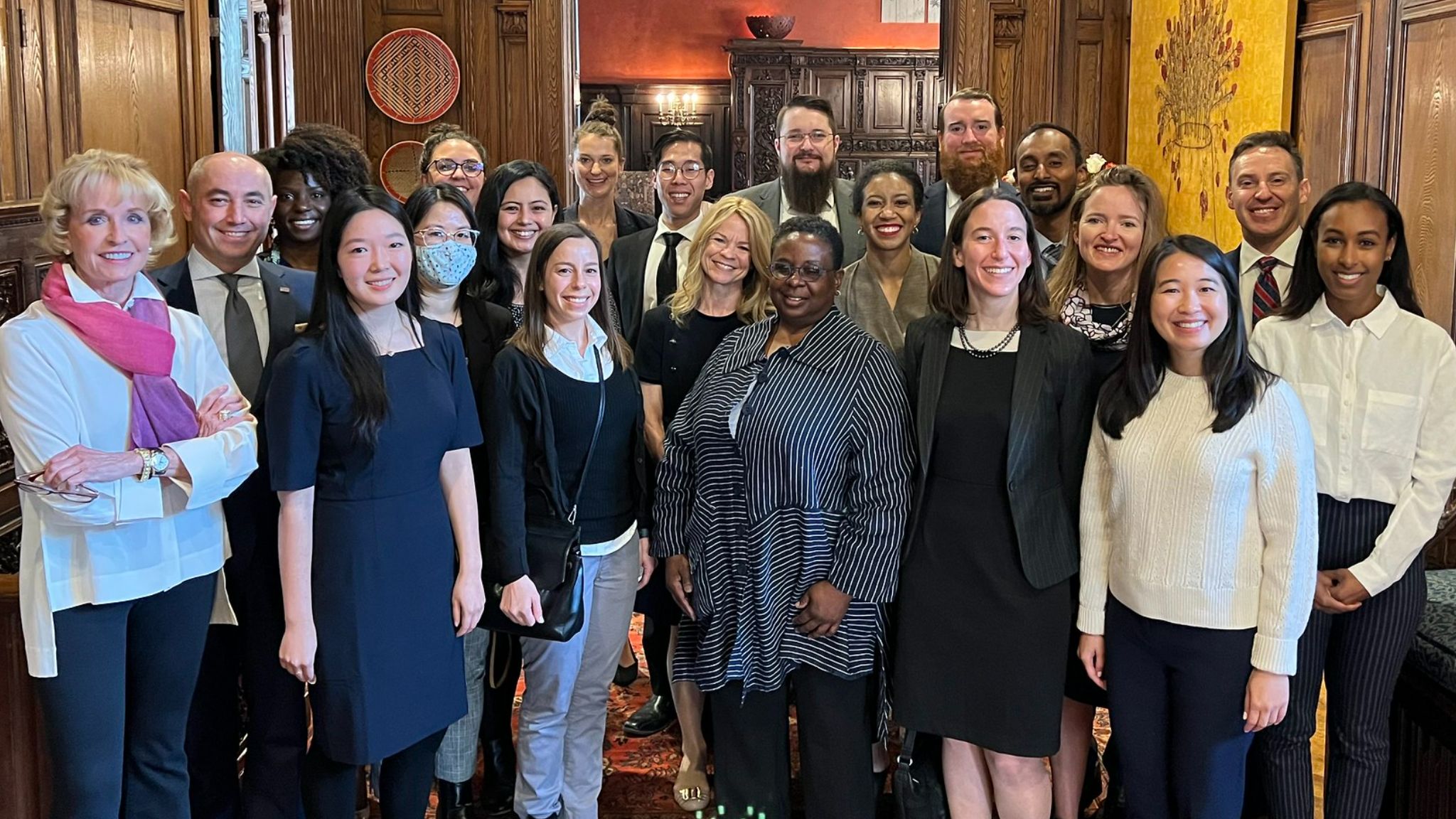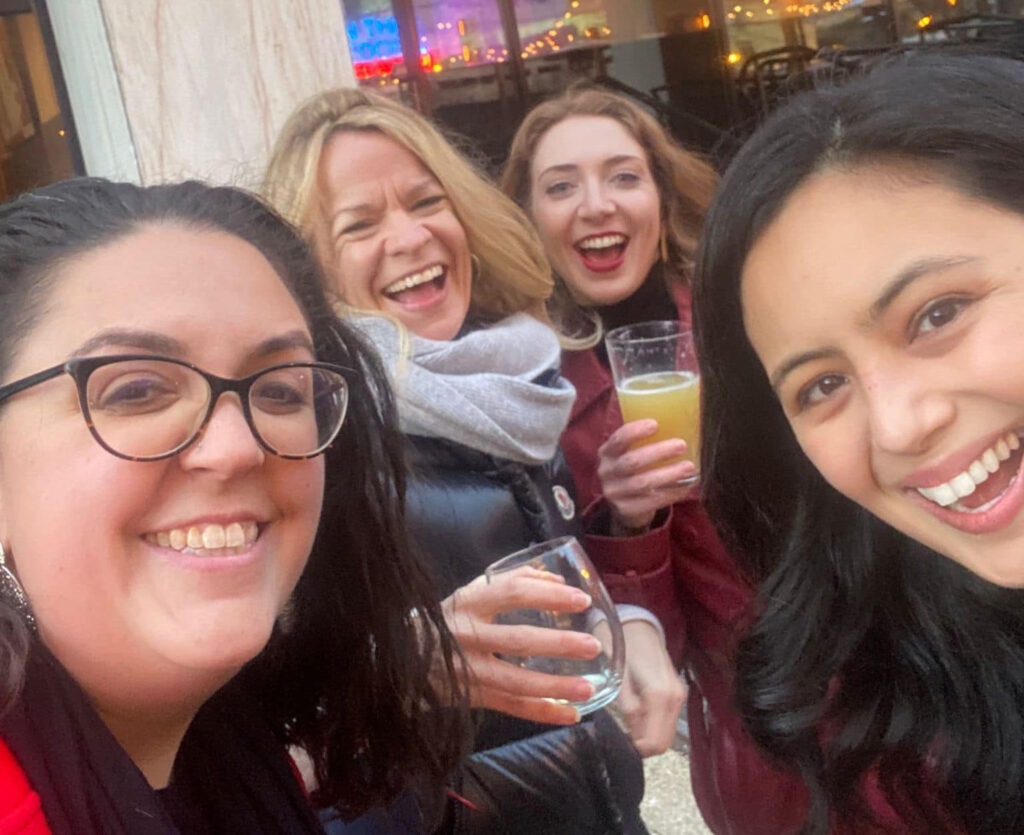
The Presidential Innovation Fellows program is for scholars seeking to tackle issues where technology, policy, and process converge. Fellows are based in Washington D.C. for 1-2 years and are embedded into a community of similarly motivated technologists and innovators who are motivated to help federal government agencies implement solutions at the local, national, and international levels.
Emily Ryan was selected as a Presidential Innovation Fellow in 2020 and learned about how she and her colleagues could use their backgrounds in technology, entrepreneurship, strategy, and design to make a difference. In this interview, Emily talks about the journey that led her to the fellowship and how it has shaped her career.
Tell us about your background and professional journey. What led you to the Presidential Innovation Fellows program?
Prior to 2020, I worked in a variety of roles in the private sector doing design, research, and full-stack development for both large Fortune 5 companies and tiny boutique firms. I have always enjoyed technology and the impact it has on society. However, in 2020, once the pandemic hit, I made a decision to join the Presidential Innovation Fellowship because I wanted to do something that would really make a difference. Originally, I envisioned working at a healthcare agency such as Health and Human Services (HHS) or the National Institutes of Health (NIH) because COVID was so new and federal initiatives desperately needed technologists. But as soon as I read the Department of Justice (DOJ) position seeking a Human-Centered Design (HCD) practitioner to help work on big projects on the Civil Rights Team, I knew I found my calling.
Can you describe what a week in the life of a Presidential Innovation Fellow is like? How did this opportunity allow you to advance your career and expand your professional network?
Oh, this is tough because each of us is doing very different things! For me, I would generally sit in on a number of high-level meetings early in the week with agency heads and listen to some of the issues that the team was trying to tackle. Mid-week might include several research sessions with internal employees and the general public to try to better understand some of the hurdles facing the departments. On Wednesdays, we had our weekly PIF All-Hands where we would come together to talk about our work and share what was going on across our agencies. There are so many ways to get involved in other agency projects and help each other out, so being together during this time was really important. Thursdays were often more focused on heads-down, “get reports and briefs ready,” while Fridays were read-outs to senior staff and a chance in the late afternoon to reconnect socially with DOJ leaders and other PIFs, and end the week on a high note.

The Presidential Innovation Fellows program seeks innovators capable of tackling issues at the convergence of technology, policy, and process. Can you talk about what this convergence looked like for your research specifically, and what your collaborations with federal agencies for your projects looked like?
A lot of what I did at DOJ was rooted in public user research and best practices across government, two areas that DOJ didn’t have a lot of prior experience. Additionally, many of those who work at DOJ are lawyers and/or have more traditional non-technical backgrounds. However, my prior master’s degree in criminal law helped me bridge that gap in truly unique ways. I also became deeply interested in policy and how it impacted the public, which led me to join DayOne’s Social Policy Incubator. This opportunity allowed me to gain firsthand experience in writing justice-tech policy. Through the fellowship, I was also able to participate in several cross-agency initiatives including designing and building the Safer Federal Workforce website in collaboration with the White House. Additionally, I was able to assist Housing and Urban Development (HUD) with the creation and administration of a new internal HCD initiative for HUD employees and advise on several smaller initiatives at Treasury, FDIC, and the National Geospatial Agency (NGA). All in all, it was an outstanding experience and the ability to work across agencies was really amazing.
What advice do you have for others applying for the Presidential Innovation Fellows program?
Start thinking about what you want to do and how you want to serve. The fellowship is incredibly competitive, generally accepting less than 5% of applicants. The application process itself is also intense. Not only will you be interviewing with the PIF program, but you’ll be expected to interview with potential agencies along the way in order to find the right match. I highly recommend attending an info session and really spending a lot of time working on creating your federal resume as well as writing short narratives that are needed for the qualifying application questions. Finally, be patient. The whole process takes months, and it can feel like ages have gone by since you last heard from the program. If you make it through, it’ll be worth it. The experience is truly like no other!
Interested in applying to this fellowship? Bookmark the Presidential Innovation Fellows program to your ProFellow account.

© 2023 ProFellow, LLC all rights reserved.